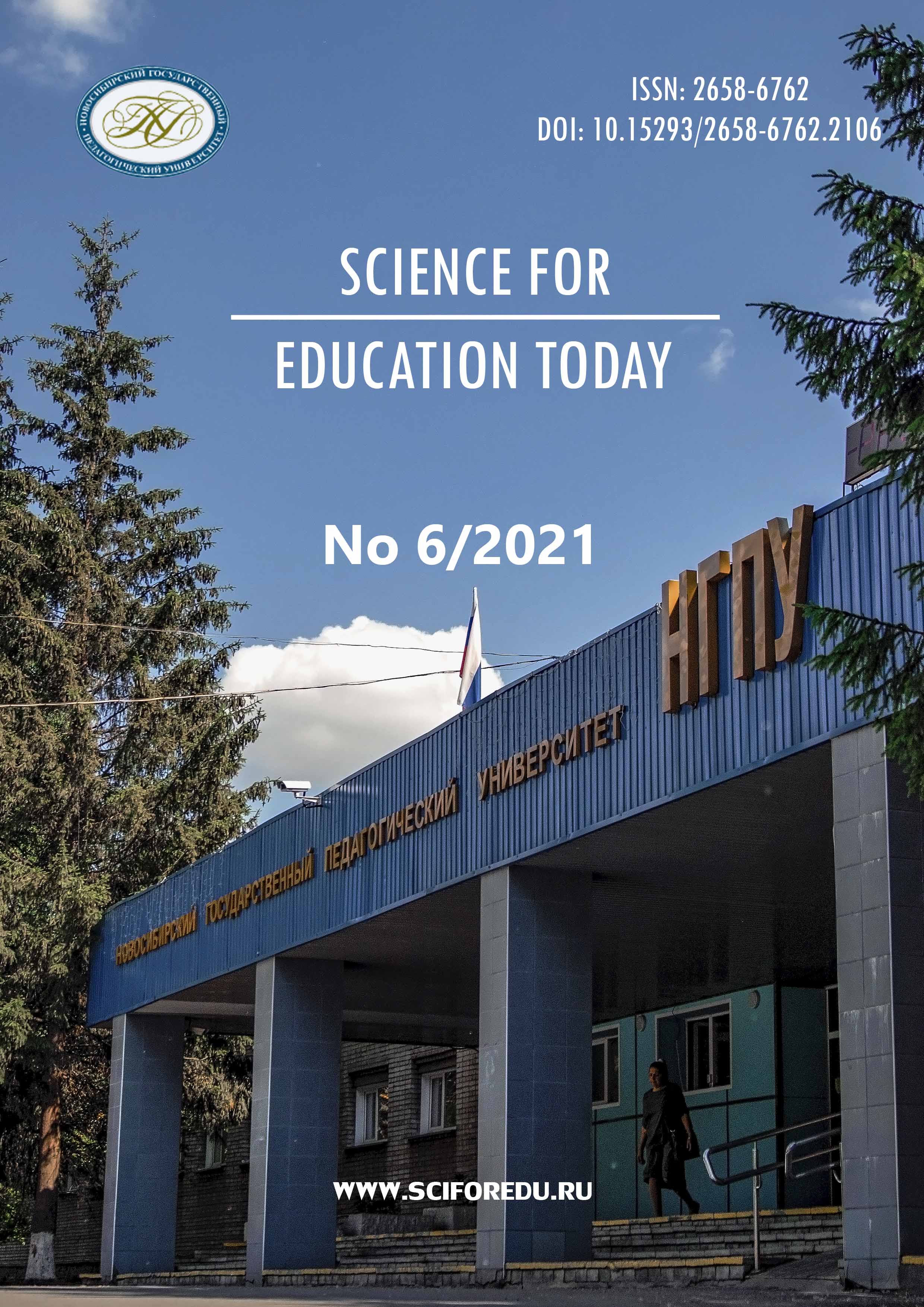Анализ использования аутентичных текстов медиасферы в целях профессиональной подготовки студентов-международников
Authentic media texts in the professional training of students studying international relations
Author(s): Nataliia Evgenjevna MerkishSubject(s): Foreign languages learning, Media studies, Language acquisition, Higher Education , Sociology of Education
Published by: Новосибирский государственный педагогический университет
Keywords: Authentic text; Foreign language media sphere; Studying German as a foreign language; Studying the culture of Germany; Professional training of students studying international relations;
Summary/Abstract: Introduction. The article examines the problem of using authentic media texts in the professional foreign language instruction of students studying international relations. The purpose of the article is to identify the main advantages and controversial aspects of using foreign media texts, to propose a step-by-step algorithm for their analysis, as well as recommendations aimed at neutralizing their impact on students. Materials and Methods. For this study, the following methods were used: analysis of scholarly and theoretical literature and authentic teaching materials, survey and questionnaires, analysis of empirical data and their systematization. The empirical study was conducted over two years. The research sample consisted of university students from nine groups (n = 79) studying advanced German as a second foreign language at MGIMO University of the Russian Foreign Ministry. Results. The article summarizes the experience of studying the process of professionally oriented foreign language teaching, built on the basis of authentic media texts. The advantages of their application are revealed: the texts of foreign language media are available, relevant, and diverse in style and genre characteristics. They are considered as a source of cultural and professional-relevant information. Their implementation has a positive effect on the development of all language skills and types of speech, affects the development of verbal and non-verbal speech, and increases motivation. The negative aspects include the following: foreign texts often have an ideological orientation, consequently, they are able to influence the recipient’s opinion, their consciousness and subconsciousness, manipulate ideas about events and phenomena of the surrounding reality. The proposed algorithm for analyzing the media text includes the following stages: evaluating the mass media, analyzing the subject matter of the text, considering the historical period of its writing, identifying the main realities, hypotheses and argumentation of the author, and ideologized structures. The final stages are comparing the source with texts in a foreign or native language, building a personal position, and mastering lexical and grammatical means of expression. Conclusions. As a result of the study, with the aim of using the advantages and leveling the negative impact, recommendations were proposed and an algorithm for analyzing the media text was developed. The implementation of this algorithm allows students to preserve their cultural identity, and prepare for professional communication.
Journal: Science for Education Today
- Issue Year: 11/2021
- Issue No: 6
- Page Range: 161-178
- Page Count: 18
- Language: Russian

